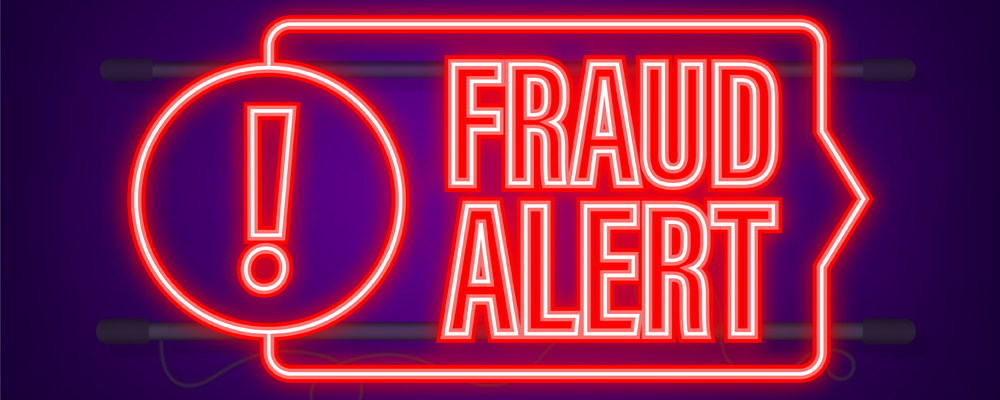The IRS recently warned employers to beware of advertisements and solicitations that promise tax refunds that seem too good to be true. They promise business owners lucrative tax refunds from the Employee Retention Credit through filing amended payroll tax returns.
Solicitations come as emails or texts. They have even started appearing on billboards and in television commercials. We at PBMares join in urging you to be very cautious of these “promises.”
The Employee Retention Credit (ERC) has been a highly successful Covid-relief program enabling businesses to prop up operations during and after the pandemic. It provides tax refunds to employers who had payroll expenses during parts of 2020 and 2021. The possible tax refund topped out at an eye-popping $26,000 per employee. For eligible businesses, this relief program has indeed been lucrative.
With such an opportunity for easy cash, companies have sprung up promising the sky to anyone who hires them. In the IRS’s language, “Some third parties are taking improper positions related to taxpayer eligibility for and computation of the credit.” An improper position is information reported on a tax return that is not supported by law. In other words, some parties are filing incorrect and possibly fraudulent returns to claim ERC refunds.
Many of our clients here at PBMares have shared with us solicitations they received. They usually claim that all or most businesses are eligible for ERC. (Not true.) They claim they can get you $26,000 per employee. (Not true.) They sometimes claim that your CPA doesn’t want to get you the credit because the work is too hard. (Not true.) They promise they will only charge you a percentage of the refund you get, usually 20% or more. (All too true.)
Let’s debunk some of these ERC myths.
There are currently only three ways to be eligible for ERC.
- If your business was partially or fully shut down by a Covid-related government order, you qualify.
- If your business experienced a significant decline in gross receipts, when you compare 2020 or 2021 to 2019, you qualify.
- If your business began after February 15, 2020 and you had less than $1,000,000 in annualized gross receipts, you qualify. (For details about each qualification method, see our original ERC articles from September and December)
Methods #2 and #3 are based on clear facts. The solicitations avoid those two.
Instead, they focus on the first – qualifying for the government shutdown order requirement. They may claim that all businesses were affected by government orders because business slowed down for everyone. Or they may claim that government orders disrupted supply chains and so affected all businesses. Or they may simply claim that all businesses are eligible and you should just let them worry about how to document the shutdown qualification details.
The truth is that, to qualify, a government order had to compel you to suspend at least some of your business operations. Think of restaurants: they were fully shut down and even when they re-opened they had seating restrictions. It is not true that you had a government shutdown just because governmental orders caused fewer customers to visit your business. It is true that there is a provision for supply chain disruptions. You could qualify if a supplier had to suspend operations due to a government order, and their suspension caused you to suspend your own operations. It’s not just that your grocery store couldn’t keep bread on the shelves. There has to be a double suspension of operations. It is a high bar.
The solicitations may also promise $26,000 per employee. It is true that, if circumstances line up perfectly, a single employee’s qualified wages could net the employer a $26,000 tax refund. It rarely happens though that every employee’s wages earn that high a refund. Some employees’ wages are just not high enough. Some employees did not work for the entire Covid eligibility period. Some wages are not qualified for the tax credit. The truth is that employers can be refunded 50% of an employee’s 2020 wages, up to $10,000 of wages, and 70% of an employee’s 2021 wages, up to $10,000 per quarter (first, second and third quarter only, except in some special circumstances). Many employees’ wages will reach that plateau. It is false to claim that they all will, especially before having reviewed any payroll records.
The solicitations also say that your CPA doesn’t want you to get the credit. Or they may say that your CPA will say you don’t qualify when you really do. The truth is your CPA very much wants you to get the credit – if you qualify. We love calling clients and telling them about this great opportunity – when they qualify. It increases your trust in our work. It increases our value in your mind. And, yes, it increases how much we can charge you. (More on that below.)
We at PBMares and our colleagues at other CPA firms have studied the criteria for the ERC closely. When we prepared your tax returns this year, we evaluated your eligibility for ERC. If you qualified, we told you. If you think you still might qualify, please call us and we will be happy to review the possibility. If you qualify, we can help you get the refund. If you do not qualify, we will tell you honestly and explain why you do not.
The solicitations make it sound like a very good deal that they will only charge you 20% of the refund you get. They only get paid if you get paid! Keep in mind that the IRS has been granted five years, not the standard three years, to audit any ERC claims. Will your solicitors be there to represent you when the IRS audits you? What do you think?
The truth is that, except in a few limited circumstances, CPAs are forbidden from charging you a percentage of a refund because it would provide an incentive to falsely inflate the refund. We do charge for our services, including in helping you determine your ERC qualification. Our fees are based on an agreed amount or on hourly rates and take into account the complexity of your work.
The IRS warns, “Taxpayers are always responsible for the information reported on their tax returns. Improperly claiming the ERC could result in taxpayers being required to repay the credit along with penalties and interest.” Your business’s name is on the tax return. You will be the one required to repay the refund and pay the penalties and interest even if you allowed someone to take an improper tax return position on your behalf.
Rely on the trusting relationship you have built with your PBMares advisors. We welcome being challenged with our competitors’ ideas. We will acknowledge a legitimate good tax idea when we see it, regardless of the source. Cheating the system to get big and easy ERC refunds is a very bad idea.
If you have further questions on your eligibility for the ERC or need assistance in calculating and claiming the credit, please reach out to one of our ERC team members – Edward Yoder or Charles Smith.






